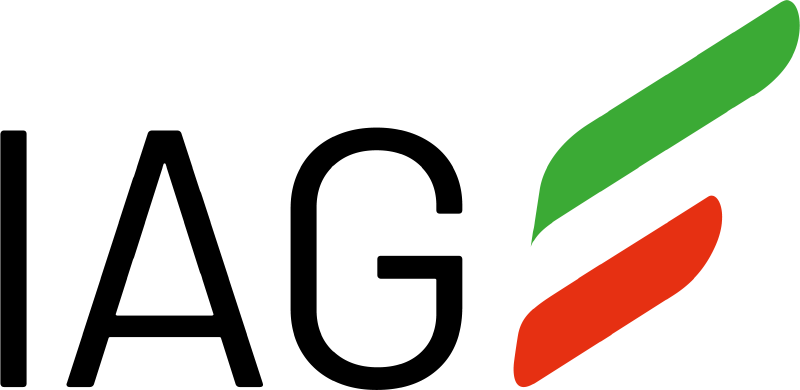Lorenzo Franchini:
Angel investor and founder of ScaleIT Capital, you have invested in more than 25 startups from Italy, France, Spain, United Kingdom, Israel, and the United States. Can you tell us more about your experience as an international investor?
It can be said that in the many investments I've made I've seen all sorts of things. I have mainly invested in Italian startups, in Italian teams based abroad or in companies with a mixed Italian and international team, but also in the three purely international investments I have seen capable and focused founders, who were able to bring home good exits when the opportunity arose, but also less transparent founders with whom the collaboration did not have a happy ending, or initiatives where the evolution of technology has pushed the startup's business out of the field. Similar experiences to those made on investments in Italy. From my experience, investing internationally does not in itself guarantee better results than investing in domestic startups. The mantra for me has remained the same: find people who are also able to quickly recognize a mistake and find the new right direction, people open to discussion, able to grow and evolve professionally, people who choose fellow travelers who are better than themselves and do not limit the strength of the startup to the perimeter of their skills. I think people with these characteristics are the key to success. People like Francesco Baschieri or Alessandro Petazzi and his co-founders just to name a couple of examples of beautiful adventures that ended well.
With ScaleIT I've had a lot of exposure to the world of international investors. I think it is important to convince international investors to invest in our startups. They can bring a lot of expertise, a different culture, and an international vision with the right network to scale globally the startups where we have invested. Again though, you always need a very good preliminary assessment, expertise or wrong approaches are everywhere, even abroad.
In addition to being co-founder of IAG, you were Managing Director of the association until 2014. What were the early years of IAG like?
We were a startup for startups. We started in late 2007 and in September 2008 the financial crisis came with the Lehman Brothers crash. On September 15, we were just having our fourth corporate presentation meeting as the investment bank went bankrupt. The partners that day thought of everything but the startups we were presenting. It was tough at first. It took us two years to find a new balance. We lacked experience, a critical mass of partners, and the external venture market was totally immature. We were pioneers. I used to go to universities to talk about angel investing and startups, and students looked at me as if I were a "Martian"; investment banking or strategic consulting looked much better as their professional aspirations. However, the biggest problem at the beginning was the governance of the Association. We did not have an Executive Committee but only a Board of Directors where it was not easy to make decisions. There was conflict and fear of taking one direction over another. I remember (and I know he remembers them well too) our discussions with Francesco Marini Clarelli at the little gardens in Piazzale Baracca in front of his office. We almost got to the point of disintegrating as a management group. We came out of it by finding a more effective governance and putting aside personal distrust, finding the right balance. Since 2010, the Association has begun to grow steadily in terms of members and investments and the expansion phase has begun.
The most significant memory?
The initial stages are certainly the most impregnated in my mind. A very important moment, which created a lot of cohesion among the group that later founded the association, was in Kansas City (during the famous founding trip) at the Kauffman Foundation headquarters when a representative of a well-known (and controversial) politician joined the group and started filming the various speeches. There was a popular uprising. Many of us went to speak to the U.S. diplomats organizing the trip and asked them to keep politics out of it. We felt like individuals, professionals, and entrepreneurs, who were there for a private interest and initiative, albeit one with potentially strong social impact. This was the spirit that moved us to found IAG and the glue that held us together through the difficult early years and that I hope will keep the Association together in the future.
The missed opportunity?
Like all long-time investors, we have missed some good ones. In the June 2020 IAG Workshop, I presented the 5 most significant opportunities we missed in the early years of the Association. At that time Docebo was worth just over $300M and was listed on the Toronto Stock Exchange. Then it also listed on the Nasdaq and today it is worth over 2.3B and has reached peaks of 3.8B. Claudio Erba came to present us the opportunity in 2010, he was looking for 500k and the pre-money was 2 mil €...what can I say...sometimes when I think back...we collected commitment only from three partners, including Antonio Leone...who was the sponsor who presented it. Assuming a home run the IAG partners could have made about a x1000, with 10k you could take home 10 million ... Antonio had put commitment for 30k ... Most of the comments of those who decided not to bet on Claudio and his scaleup said that the market was already manned and the business not very scalable. In my opinion we missed two fundamental elements that determine the success of many ventures. One element we could already understand in 2010, the other we could not. The first was the ability of Claudio and his team to execute. Without significant funding they had already been able to grow the company internationally with an office in Dubai and they already had a significant client portfolio with almost one million in turnover. The other was harder to figure out at the time and is always hard to figure out. The founder's ability to grow professionally and create an excellent team around him.
Enrico Castellano:
Enrico you have a long experience in Accenture, you were one of the Partners who developed the global consulting, technology, and outsourcing company in Italy, as well as a promoter of innovation and talent in Italy. How did you approach the startup ecosystem?
I have always shared that the values of Accenture in a certain sense anticipated those of the society in which we are now immersed. In particular, the attention to the development of young talent and the enhancement of technological innovation to improve business performance. I have to say, however, that Accenture has only recently become a full player in the ecosystem, both through the increasing number of Corporate Venture Capital initiatives and the acquisition of startups, and above all through its contribution to the digital transformation of its clients. My true approach to the ecosystem therefore came only after I finished my career, and in a completely random way. The Accenture Alumni Association had published a white paper on innovation, following which contacts were made with the Partnership for Growth program of the US Embassy in Italy. When the Embassy organized the famous study tour in September 2007, I decided to participate, certainly interested in the experience, but with unclear ideas about what I would find there, and to take advantage of the opportunity, since no one else in the Alumni Association was available.
After learning about the American Business Angel approach, at the end of 2007 you were one of the 9 co-founders of IAG. How was it to be the pioneer in this kind of activity in our country? What have been the main difficulties?
It has been an extremely stimulating adventure, and a fun one too. There have been challenges to overcome, starting with the initial growth problems and the problem of financing an association when the fixed costs did not see volumes yet capable of absorbing them, but I don't think you can call them difficulties. In any case, these commitments and efforts were certainly more than offset by the great benefits of an experience that, to use Francesco Marini Clarelli's definition, is "financially attractive, professionally stimulating and personally enjoyable". If I wanted to "weigh" these three aspects, I would certainly reverse the order, also because of the experience of dozens of investments made. What remains, however, is the satisfaction with the quality of the "journey", a quality that derives above all from that of the travel companions: after having had a similar opportunity in Accenture, in IAG, even after the end of my career, I was able to continue to benefit from the professional stimuli and fun that come from the possibility of associating with people of value.
Do you remember the first investment you made with IAG Partners?
Yes, of course. It was a technology to support security, allowing an effective management of the passwords that each one of us must manage in increasing numbers. An investment that was examined at the first IAG Members Meeting and that we closed in May 2008. The startup turned out to be quite dead early on and survived for many years precariously (I think the definition of this type of survival is "zombie"), eventually leading to a sale, negotiation with the founders and liquidation process that lasted more than 2 years. Finally, at the beginning of 2016, IAG members were able to recover a little more than 50% of their investment, only thanks to the extraordinary commitment, made of both tenacity and patience, of the Champion Andrea Parmeggiani. I think that my email to Andrea, which I found in my archives, can well summarize my evaluation of an investment that has certainly taught us a lot: "Thank you Andrea, if I have to evaluate in extreme synthesis this first investment of ours (made when we were, at least I was, more confident and "carefree") I can say that we were definitely wrong in choosing the entrepreneur, but we were absolutely right in choosing the Champion!".
An anecdote about the birth of the association?
In particular, on what my initial trip to the USA revealed to me. In Milwaukee and Kansas City, what struck me most was the local, I would say popular, rooting of the Business Angels' activity. The air that one breathed in the meetings with Tim Keane and his Golden Angels for example, seemed to me very similar to that that in Italy you breathe in a meeting of the Pro Loco of a provincial town. An environment where, beyond the technical and economic aspects, the motivation to "give back" to the local community where the angels had been able to achieve their professional and economic success emerged with great force. I remember an elderly former merchant of Jewish origin. I seem to remember his name was George Kosher, who, after having left part of his patrimony to his children and grandchildren, insisted on financing all the projects that were presented, projects that he followed with great attention and rigor, manually noting down in a diary all the transactions. I believe that this aspect of angel investing is very important for a country like ours, where, despite the progress made in recent years, investments in startups are lagging far behind compared to our main competing countries, but where at the same time, there are many territories that, in terms of entrepreneurship and the spread of wealth and savings, have nothing to envy from these countries.








